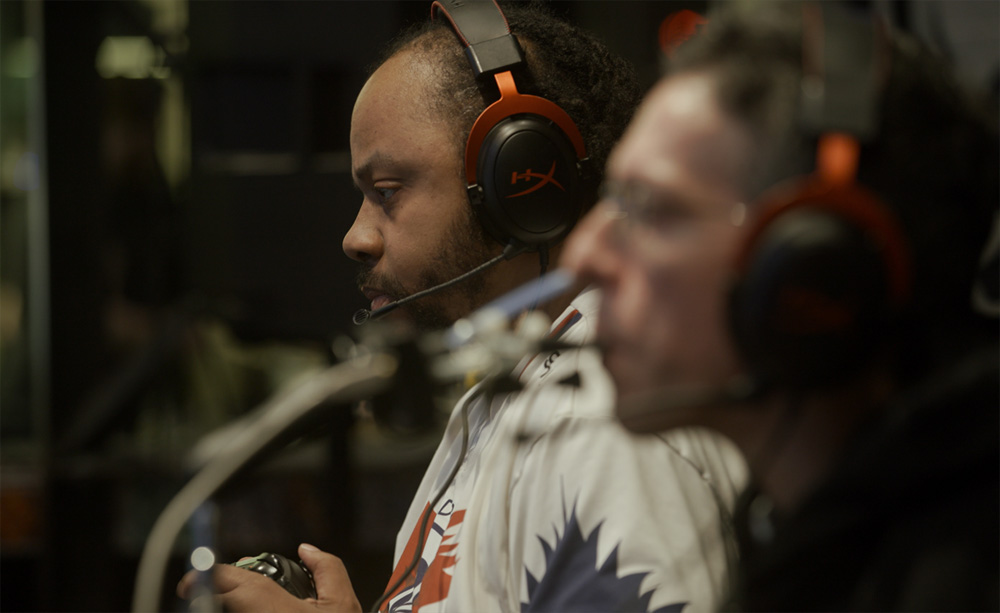“I had to condition myself mentally to be strong,” says Richard at the start of “Quad Gods,” looking at himself as a muscle-bound wrestler on his television as he plays a video game. “It’s easier said than done.”
Richard isn’t presented as any less formidable than his on-screen avatar, but the camera does eventually catch the fact that he’s a quadriplegic and in Jess Jacklin’s compelling doc, the game he’s playing is hardly trivial when under the guise of “Breadwinner1007,” the ability to see himself with unlimited mobility would seem to open his mind as well. Regardless, he’s a part of progress in “Quad Gods” as a member of an E-Sports team that’s formed out of the Abilities Research Center at Mount Sinai where Dr. David Putrino has been spearheading unorthodox treatment for those who think they’ll be paralyzed for life, using video games and VR to stimulate patients’ neurological responses, which in turn could activate other muscles.
Whether it was a choice to focus on a trio of men who were quite active before freak accidents incapacitated them or they lent themselves to Putrino’s study, Jacklin spares audiences of teary backstories when you can immediately understand the cruelty of the former football semi-pro Prentice being unable to use his legs after flying off his bike on the way to Rucker Park, still presiding over rigorous practices now for kids, and Blake, who still flies around the city in his motorized wheelchair, but has to decline a delivery to the second floor of a building for obvious reasons. What made for a nice feel-good story on the evening news when the Quad Gods enter a gaming tournament clearly benefits from the feature-length treatment when the technology allows the trio of men to revision themselves with renewed confidence, but there’s a more complex and innately human story at its core.
Jacklin wisely downplays the tournament to drive the narrative, but not the effect the competition has on Blake, Patrice and Richard when some are satisfied with simply being back in action while others seriously want the $50,000 prize, creating questions about the effort that’s put into what should just be fun. New devices may allow a level of engagement with games that’s never been possible before – there are controllers that can be activated by breath or facial movement alone, and it’s quite easy to be wowed as the quadriplegics are by the possibilities when they go out for a drive in a real car, equipped with all the latest tech to make it possible to get behind the wheel. Yet “Quad Gods” captures the more rewarding and messier connections the men have to make with one another to pull each other through such a vulnerable time in their lives, daring to hope for the first time in a while that their physical condition might improve and coming to realize that giving each other confidence or compromising their own personal aspirations for what’s best for the group is equally critical for growth as any of the new devices that aid their rehabilitation. There may be a lot of innovation on display in “Quad Gods,” but what works for both its subjects and the film itself turns out to be an old fashioned sense of community while still holding the surprise of seeing a different kind of strength develop than what one might go into it thinking.
“Quad Gods” will premiere on HBO on July 10th at 9 pm and stream on Max thereafter.




